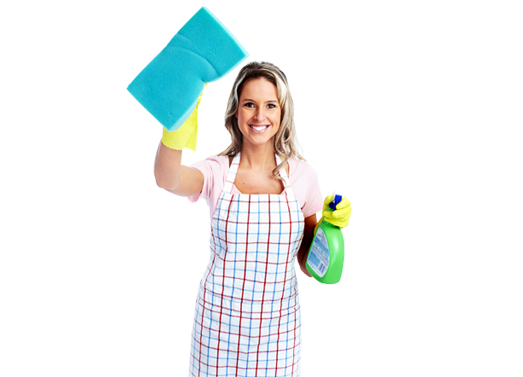Say goodbye to unpleasant damp odors in your home
Posted on 01/09/2025
Say Goodbye to Unpleasant Damp Odors in Your Home
Unpleasant damp odors in your home can be both embarrassing and frustrating. Not only do these odor problems make your living environment less inviting, but they can also be a sign of underlying moisture issues that, if left unchecked, may lead to mold, mildew, and even health concerns.
Are you tired of walking into a musty-smelling room? Do you want to regain the fresh and inviting atmosphere that your home truly deserves? This comprehensive guide will help you understand the causes of unpleasant damp odors, and equip you with effective strategies to eliminate and prevent them for good. Start your journey towards a fresher, healthier home right now!
Understanding the Causes of Unpleasant Damp Odors
Before taking action against musty odors in your house, it's essential to pinpoint the underlying reasons for their existence. Many factors can contribute to the development of a damp odor, including:
- High humidity: Inadequate ventilation and naturally humid climates can elevate indoor moisture, leading to damp smells.
- Leaks and water intrusion: Roof leaks, plumbing issues, or even minor spills can create an environment ripe for mold growth and musty odors.
- Poor air circulation: Stale air prevents damp areas from drying out and allows unpleasant smells to linger.
- Condensation: Cold surfaces, such as windows and walls, can gather moisture, eventually causing mustiness.
- Mold and mildew: These fungi thrive in damp conditions and are notorious for their pungent, musty scent.
- Unclean soft furnishings: Carpets, curtains, sofas, and even clothes can absorb moisture and develop a damp odor, especially if not regularly cleaned.
Recognizing these causes is the first step in learning how to banish unwanted air from your home for good.

Step-by-Step Guide to Eliminating Damp Smells
Now you know the sources, let's tackle the solutions. Follow these steps to eliminate unpleasant damp odors in your home:
1. Identify and Fix Moisture Sources
Inspect your home for signs of leaks or water intrusion:
- Check under sinks, around toilets and bathtubs, and beneath appliances for hidden leaks.
- Look for water stains or discoloration on ceilings and walls, indicating possible roof or pipe leaks.
- Ensure that windows and doors are well-sealed to prevent rainwater from seeping in.
Fixing these issues is paramount before moving on to odor control. If you discover mold, consider calling in a professional for removal and remediation, especially for larger areas.
2. Enhance Ventilation
Poor air circulation is a major factor behind lingering damp odors. To improve ventilation:
- Open windows daily, especially after showers and cooking or on humid days.
- Use exhaust fans in kitchens, bathrooms, and laundry areas to direct damp air outside.
- Consider installing trickle vents or using window fans.
- Keep interior doors open to promote airflow throughout your home.
Increased ventilation helps areas dry faster, preventing musty air from settling in the first place.
3. Invest in a Dehumidifier
For regions with consistently high humidity or for rooms like basements, using a dehumidifier can be a game-changer. Not only does it reduce moisture in the air, but it also starves mold and mildew of the conditions needed to thrive.
- Choose an appropriately sized dehumidifier for the area.
- Regularly empty the water tank and clean filters per the manufacturer's recommendations.
- For extra impact, position the dehumidifier near problem areas or sources of musty smells.
4. Deep Clean Affected Areas
To truly say goodbye to musty odors in your home, a deep clean is often necessary:
-
Wash carpets, rugs, and upholstery:
- Steam cleaning or shampooing can remove embedded mold spores and odor-causing agents from fibers.
-
Launder curtains, bedding, and soft furnishings:
- Wash on a hot cycle with a cup of white vinegar for maximum odor removal.
-
Wipe down hard surfaces:
- Use a solution of water and vinegar or a commercial mold cleaner for walls, floors, and tiles.
Don't forget hidden spots such as under furniture, inside closets, and behind appliances.
5. Use Natural Odor Absorbers
Natural solutions can help to absorb and neutralize lingering odors while you tackle moisture issues:
- Baking soda: Sprinkle on carpets and let sit for several hours before vacuuming.
- Activated charcoal: Place bowls in musty rooms or enclosed spaces for up to 30 days.
- White vinegar: Leave a bowl out overnight in affected areas to absorb odors.
- Coffee grounds: Fresh coffee grounds can also act as a natural deodorizer for smaller spaces like cupboards.
6. Replace Contaminated Items
If certain items have been heavily affected by dampness and persist in smelling musty even after treatment, it may be best to replace them. Items like old carpets, insulation, or mold-ridden drywall can continually release nasty damp smells and negatively impact indoor air quality.
Preventing Damp Odors From Returning
Once you have eliminated unpleasant odors from your home, it's crucial to take preventive measures to ensure they don't return. Follow these tips to maintain a fresh interior environment:
1. Control Indoor Humidity
Maintain indoor humidity levels between 30%-50% to prevent excess moisture and mold growth.
- Use air conditioning or a dehumidifier as needed, especially during humid months.
- Set up hygrometers to monitor humidity in problem areas.
2. Regular Maintenance Checks
- Inspect your roof, gutters, and external walls for leaks or cracks and repair promptly.
- Service plumbing to address drips or minor leaks before they become bigger issues.
- Clean gutters and downspouts regularly to prevent water from pooling near your foundation.
3. Keep Surfaces Dry
- Wipe down wet surfaces in bathrooms and kitchens after use.
- Hang towels and bathmats to dry completely.
- Air out wet clothes and store only when completely dry.
4. Store Items Properly
Basements, attics, and garages are notorious for accumulating damp smells--especially if items are packed away carelessly. Always:
- Store items in airtight plastic bins rather than cardboard boxes which absorb moisture.
- Use silica gel or moisture-absorbing packets in storage areas.
- Avoid stacking items directly against walls or on the floor; promote airflow by leaving space.
5. Keep Your Home Clean
- Vacuum and mop floors weekly.
- Regularly clean and air out closets, basements, and storage areas.
- Remove clutter that can trap moisture and block airflow.
Health Risks of Lingering Damp Odors
Addressing musty, damp home odors isn't just about comfort--your health could also be at risk. Prolonged exposure to mold spores and mildew can negatively impact respiratory health, particularly for:
- Individuals with allergies or asthma
- The elderly or very young children
- Those with weakened immune systems
Symptoms can include sneezing, coughing, itchy eyes, skin irritation, and even more severe allergic reactions. It's important to tackle the root cause of dampness and remove sources of mold and mildew for safer, healthier air quality in your home.
Expert Advice on Persistent Musty Odors
If you've tried all the steps above and still notice unpleasant damp odors in your home, it may be time to consult a qualified professional. Mold remediation experts or certified indoor air quality specialists can:
- Detect hidden leaks and moisture sources with specialized equipment
- Provide mold and mildew inspection and testing services
- Recommend targeted remediation and repairs to keep your home odor-free
- Advise on long-term strategies for humidity and moisture management
Don't hesitate to seek professional help if you suspect a persistent or widespread moisture issue--doing so ensures your family's health and the integrity of your property.
Natural Remedies for a Fresh-Smelling Home
Alongside mechanical and chemical solutions, consider these natural ways to keep your home smelling fresh after eliminating damp odors:
- Simmer citrus peels and spice sticks (such as cinnamon) for a subtle, pleasant fragrance.
- Diffuse essential oils like eucalyptus, lavender, or tea tree--some also have antimicrobial properties.
- Keep indoor plants such as peace lilies or spider plants to help purify the air.
- Use homemade air fresheners such as vinegar and lemon, or baking soda with a few drops of essential oil.

Frequently Asked Questions About Damp Odors
Q1: Can I use air fresheners to mask musty odors?
A: While air fresheners may temporarily mask bad odors, they do not address the root cause. To truly say goodbye to unpleasant damp smells in the house, you must tackle the source of moisture and any resulting mold or mildew.
Q2: Are damp odors always caused by mold?
A: Not always--high humidity, condensation, and unventilated spaces can cause a damp, musty smell without visible mold. However, mold is a common culprit and should be ruled out during your investigation!
Q3: What's the quickest way to get rid of a musty smell before guests arrive?
A: Quickly ventilate the space, wipe down surfaces, place bowls of baking soda or vinegar in the room, and consider running fans or a dehumidifier. These steps help to reduce musty odors fast, though you'll need to address underlying moisture for a permanent fix.
Conclusion: Fresh Starts for Every Room
Saying goodbye to unpleasant damp odors in your home is absolutely achievable. By identifying the causes, removing moisture sources, cleaning affected areas, and maintaining optimal indoor conditions, you can enjoy a home that smells as good as it looks. Don't let persistent damp odors ruin your comfort--take action today for a fresher, healthier living space tomorrow.
Regular home maintenance, proper ventilation, and mindful cleaning are your all-season allies in the battle against dampness and musty air. With the tips and strategies outlined here, you're empowered to keep your home odor-free and inviting for years to come.
Ready to breathe easier? Say goodbye to musty, damp odors in your home for good--start with these proven steps and make every room a breath of fresh air!
Latest Posts
Top Tips for Streak-Free Windows
Elevate Your Window Cleaning Skills to New Heights
Conquer Mould on Window Sills: A Thorough Cleaning Approach
Your Guide to Pristine Jewellery Maintenance
Bring Out the Best in Your Car with Professional Cleaning Methods





